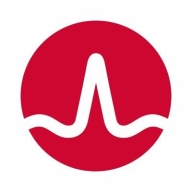

VMware Aria Operations and Red Hat CloudForms are both leaders in IT infrastructure management. VMware Aria Operations appears stronger within the VMware ecosystem, while Red Hat CloudForms brings broad multi-cloud compatibility.
Features: VMware Aria Operations provides predictive analytics, capacity planning, and real-time performance monitoring. Red Hat CloudForms offers multi-cloud management, integration across private and public clouds, and wide compatibility.
Room for Improvement: VMware Aria Operations can improve platform integration and UI simplicity. Red Hat CloudForms could benefit from enhanced update stability, better integration, and easier reporting tools.
Ease of Deployment and Customer Service: VMware Aria Operations supports flexible deployment across on-premises and cloud environments, with generally high marks for technical support. Red Hat CloudForms also offers various deployment models but faces some stability challenges. Customer support remains generally consistent despite changes related to IBM.
Pricing and ROI: VMware Aria Operations is premium-priced, ideal for enterprises within the VMware ecosystem, with ROI seen in reduced operational costs. Red Hat CloudForms offers cost-effective subscription pricing, appealing for multi-cloud management, but may face competitiveness issues in pricing against market alternatives.
| Product | Market Share (%) |
|---|---|
| VMware Aria Operations | 4.5% |
| Red Hat CloudForms | 1.8% |
| Other | 93.7% |


| Company Size | Count |
|---|---|
| Small Business | 4 |
| Large Enterprise | 7 |
| Company Size | Count |
|---|---|
| Small Business | 64 |
| Midsize Enterprise | 62 |
| Large Enterprise | 278 |
Manage container, virtual, private, and public cloud infrastructures
Managing a complex, hybrid IT environment can require multiple management tools, redundant policy implementations, and extra staff to handle the operations. Red Hat® CloudForms simplifies IT, providing unified management and operations in a hybrid environment.
As your IT infrastructure progresses from traditional virtualization toward an Infrastructure-as-a-Service (IaaS) model, CloudForms evolves, protecting your investments and providing consistent user experience and functionality.
VMware Aria Operations is a high-ranking virtualization management and cloud management tool that automates and simplifies IT management to the applications it supports. It achieves this through full-stack visibility from physical, virtual, and cloud infrastructure. The product allows users to enable self-driving IT operations management across private, hybrid, and multi-cloud environments. This is conducted with the unified operations platform that delivers continuous performance, capacity and cost optimization, and integrated compliance through artificial intelligence (AI) and machine learning (ML), and predictive analytics.
VMware Aria Operations Use Cases
VMware Aria Operations has several use cases, some of which include:
VMware Aria Operations Features
The product has various features which users can utilize. Several of the features that the 2022 version of VMware Aria Operations introduced include:
VMware Aria Operations Benefits
VMware Aria Operations brings various benefits to the organizations using it. Among them are the following:
Reviews from Real Users
Mohamed N., a tech lead VMware support engineer at a tech services company, appreciates VMware Aria Operations because it is easy to use, stable, and support is always available.
Mojtaba K., a senior system administrator at a comms service provider, values VMware Aria Operations due to the fact that its dashboards give you a glimpse of what is really going on in your virtualized environment.
We monitor all Cloud Management reviews to prevent fraudulent reviews and keep review quality high. We do not post reviews by company employees or direct competitors. We validate each review for authenticity via cross-reference with LinkedIn, and personal follow-up with the reviewer when necessary.